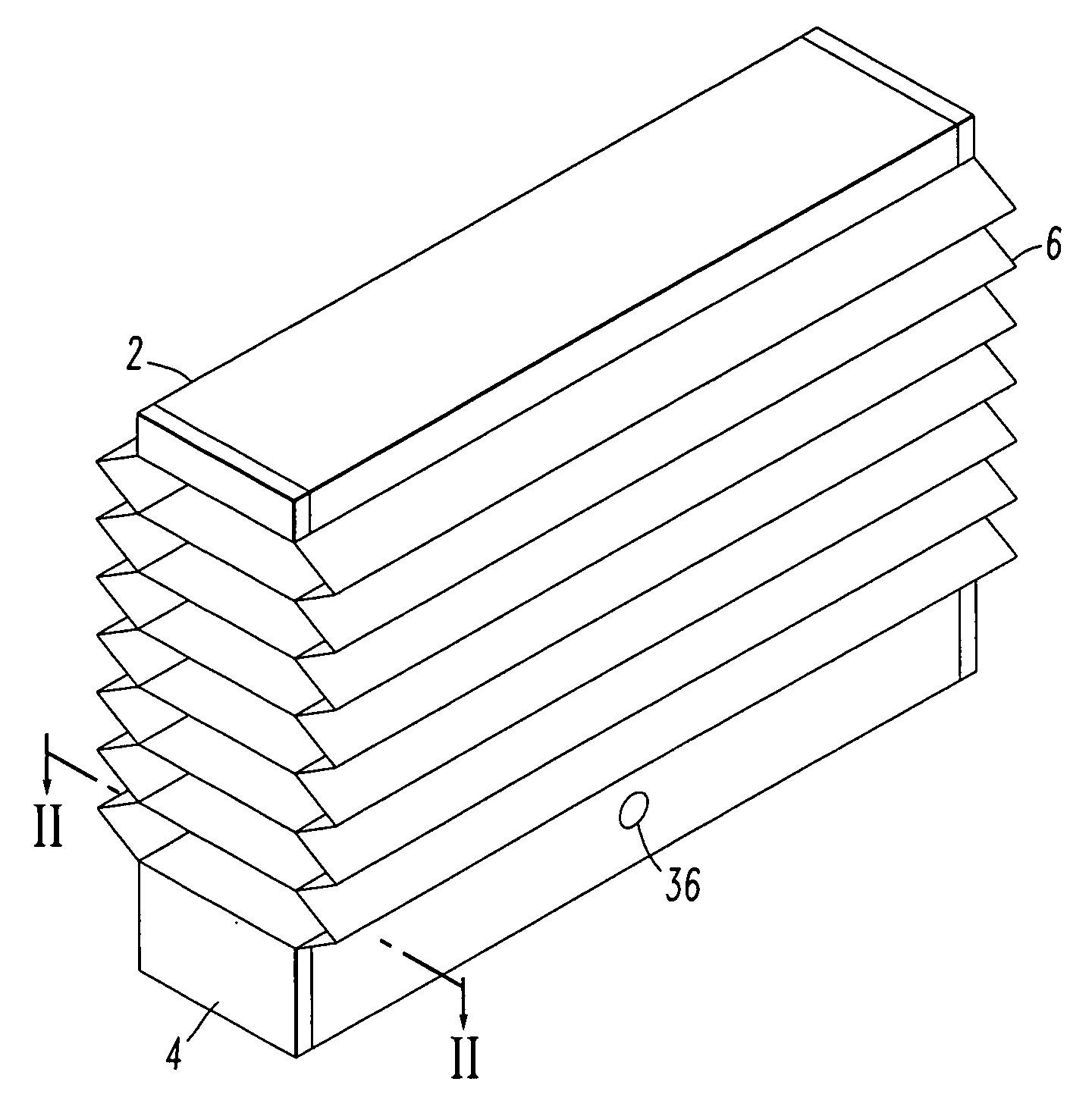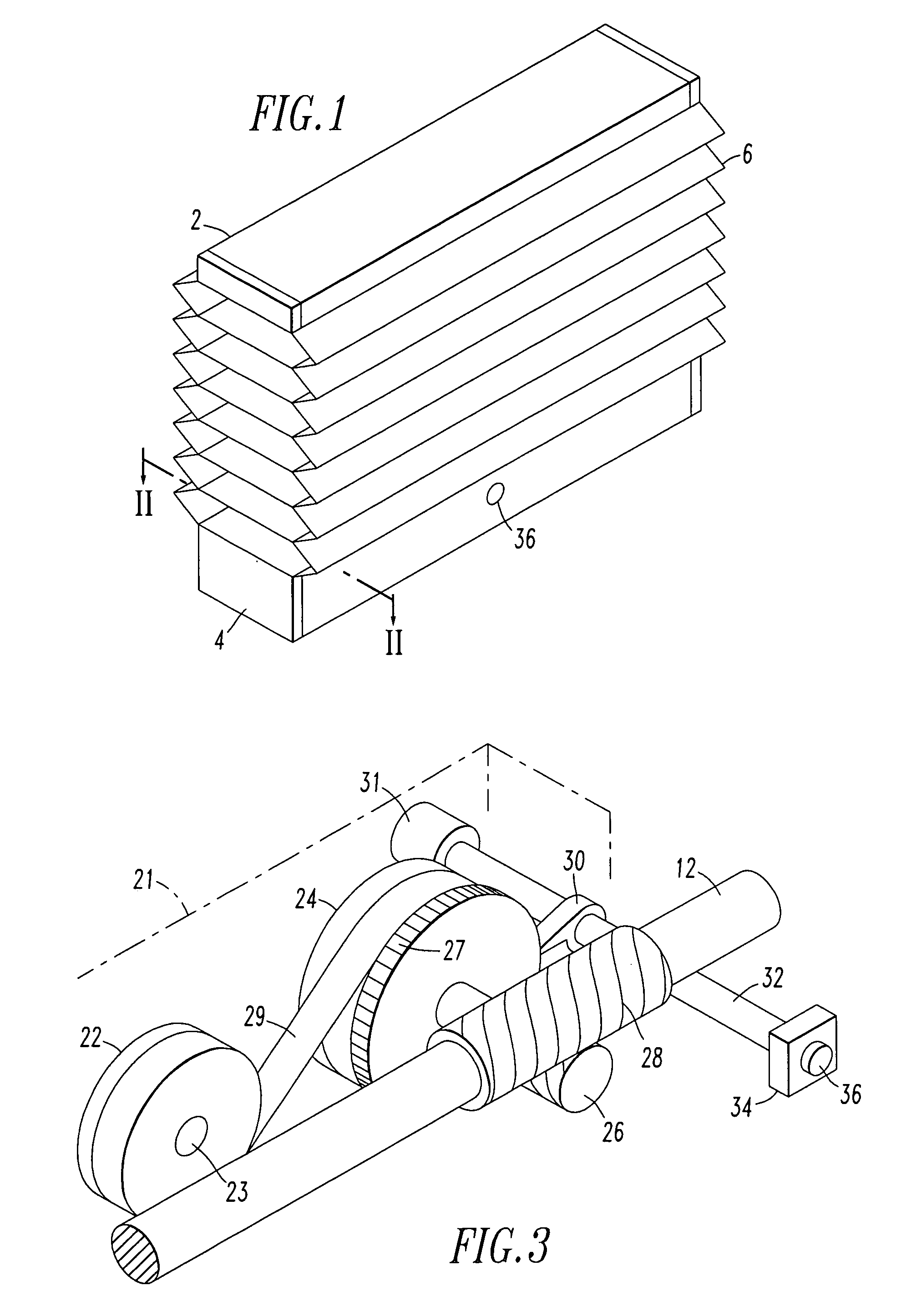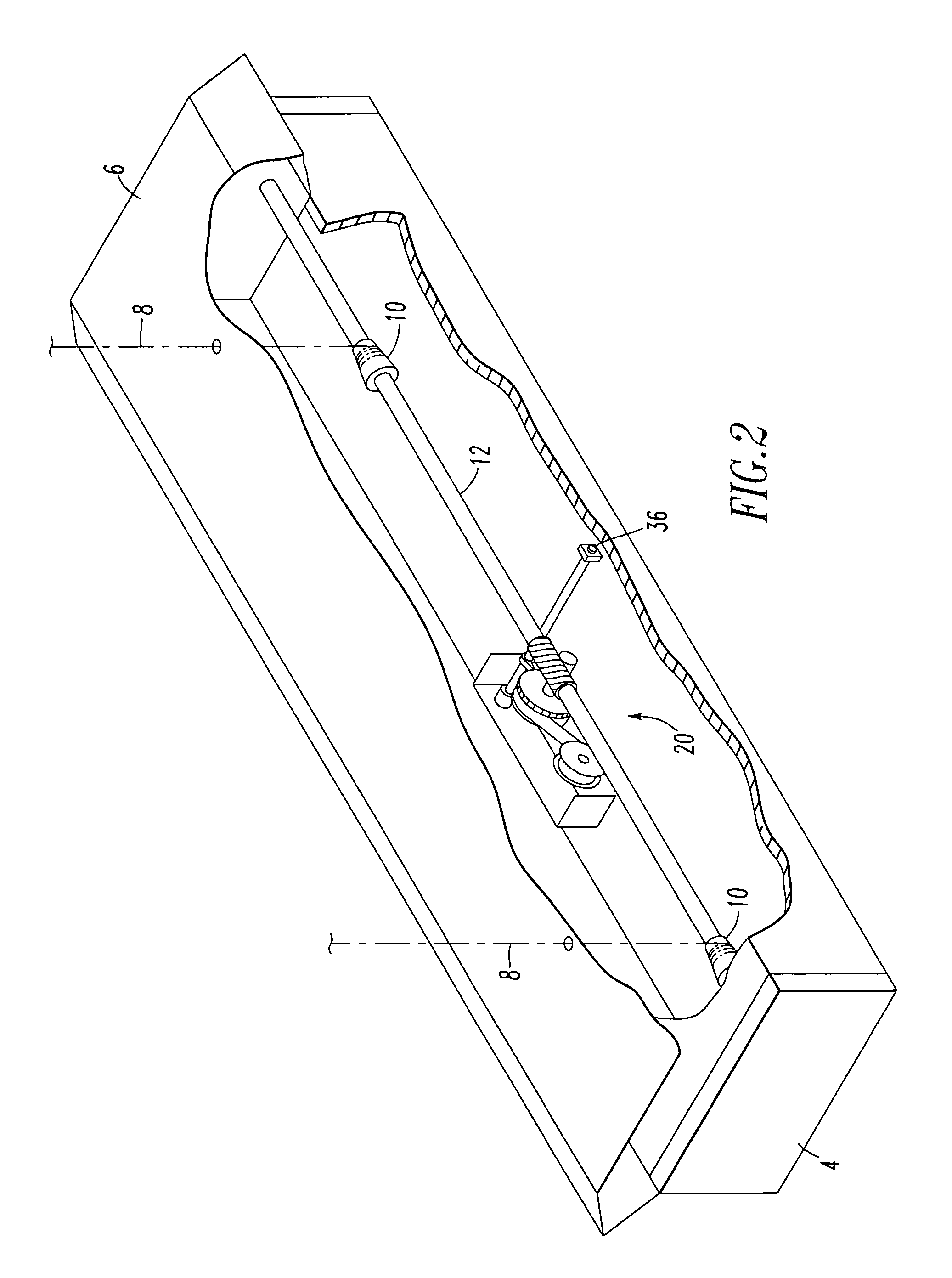Cordless blind with lock mechanism
a cordless blind and lock mechanism technology, applied in the field of lift systems, can solve the problems of not being able to keep the bottomrail at the desired location, the inconvenient installation of coslett's blinds, and the cords, so as to maintain the tension of the cord collector
- Summary
- Abstract
- Description
- Claims
- Application Information
AI Technical Summary
Benefits of technology
Problems solved by technology
Method used
Image
Examples
first embodiment
[0043]Another spring motor configuration is illustrated in FIG. 5. This spring motor 50 has three take-up drums 52 each carrying a spring that is also connected to an associated storage drum 54. A link 56 connects the take up drums together. The lift cords are wound on spools connected to a respective storage drum. This spool and take up drum configuration is similar to the spool 42 and take up drum 24 shown in FIG. 4. In the embodiment of FIG. 5 the spools are behind the take up drums and thus are not visible in the figure. A spring 59 is connected between each storage drum 54 and take up drum 52 pair. This spring can be any of the springs described as suitable for use in the first embodiment and operates in the same manner. A lock mechanism (not shown) is connected to at least one of the storage drums or spool. The lock mechanism operates in the same manner as the lock mechanism described in the embodiment of FIGS. 1, 2 and 3.
[0044]Yet another spring motor configuration is shown i...
second embodiment
[0046]Second and third present preferred embodiments of my cordless blind utilize a cord lock in conjunction with one or more spring motors. The spring motor and lock mechanism for the second embodiment shown in FIG. 8 has a single spring motor with a take up drum 24 and storage drum 22. A cord collector spool 44 is carried on the same axle 42 that carries take up drum 24. Consequently, the spring motor will try to wind the lift cords 8 onto the spool 24. The lift cords are routed through a cord lock 46. When the cord lock is in a locked position, the lift cords cannot be wound onto the spool. When the cord lock is unlocked the spring motor will wind the lift cords onto the spool raising the blind. Furthermore, while the cord lock is unlocked a user could pull the bottomrail down overcoming the force of the spring motor and lowering the blind. The cord lock 46 may contain a rotary-cam lock mechanism that acts directly on the cords. The third present preferred embodiment has a bottom...
PUM
 Login to View More
Login to View More Abstract
Description
Claims
Application Information
 Login to View More
Login to View More - R&D
- Intellectual Property
- Life Sciences
- Materials
- Tech Scout
- Unparalleled Data Quality
- Higher Quality Content
- 60% Fewer Hallucinations
Browse by: Latest US Patents, China's latest patents, Technical Efficacy Thesaurus, Application Domain, Technology Topic, Popular Technical Reports.
© 2025 PatSnap. All rights reserved.Legal|Privacy policy|Modern Slavery Act Transparency Statement|Sitemap|About US| Contact US: help@patsnap.com



